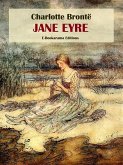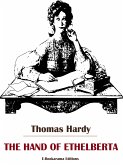Originally published in 1861, "Silas Marner" (AKA "Silas Marner: the Weaver of Raveloe"), is the third novel by George Eliot. The novel tells the story of a weaver who turns from a life of greed to a life of generosity. This story has a strong redemptive theme - it is a tale of loyalty, forgiveness, and adoptive love. Wrongly accused of theft and exiled from a religious community many years before, the embittered weaver Silas Marner lives alone in Raveloe, living only for work and his precious hoard of money. But when his money is stolen and an orphaned child finds her way into his house, Silas is given the chance to transform his life. His fate, and that of Eppie, the little girl he adopts, is entwined with Godfrey Cass, son of the village Squire, who, like Silas, is trapped by his past. "Silas Marner", George Eliot's favourite of her novels, combines humour, rich symbolism and pointed social criticism to create an unsentimental but affectionate portrait of rural life. George Eliot was the pen name of Mary Ann Evans, who wanted to be anonymous due to her long affair with George Henry Lewes. She did not want her readers to focus on the rumours surrounding her love life. She also wanted to be taken seriously as a writer, which was not always possible for a woman during that period.
Dieser Download kann aus rechtlichen Gründen nur mit Rechnungsadresse in A, B, BG, CY, CZ, D, DK, EW, E, FIN, F, GR, HR, H, IRL, I, LT, L, LR, M, NL, PL, P, R, S, SLO, SK ausgeliefert werden.









